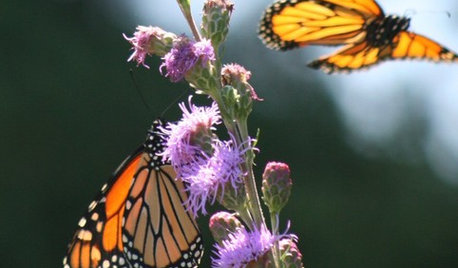Fine Tuning Questions
pchid
9 years ago
Related Stories

KITCHEN DESIGNKitchen of the Week: Fine-Tuning a Connecticut Farmhouse
New custom cabinets and other makeover moves take an already functional kitchen to the next level
Full Story
SHOP HOUZZShop Houzz: Fine-Tune Your Foyer
Mix and match elements to create an eclectic entryway that speaks to your style
Full Story0

LIGHTING5 Questions to Ask for the Best Room Lighting
Get your overhead, task and accent lighting right for decorative beauty, less eyestrain and a focus exactly where you want
Full Story
MOST POPULAR8 Questions to Ask Yourself Before Meeting With Your Designer
Thinking in advance about how you use your space will get your first design consultation off to its best start
Full Story
REMODELING GUIDESSurvive Your Home Remodel: 11 Must-Ask Questions
Plan ahead to keep minor hassles from turning into major headaches during an extensive renovation
Full Story
HOUSEPLANTSPlay Up Some Fiddleleaf Figs for a Lively Indoor Tune
Strike a dramatic chord in a minimalist scene or a country note in a rustic setting — fiddleleaf fig plants harmonize with any style
Full Story
HOME TECHTote Your Tunes to Any Room With a Portable Wi-Fi Sound System
Free your home's music setup from wires with Wi-Fi speakers that let you take high-quality audio anywhere
Full Story
GARDENING AND LANDSCAPING10 Great Ways to Unplug and Tune In to Nature
Whether you pledge to camp out or just promise yourself a stroll, these ideas will help you heed the call of the outdoors
Full Story
MEDIA ROOMSContractor Tips: Tune In to a Top-Notch TV Room
Outfit your media room with plenty of bells and whistles for optimal television viewing
Full Story
COFFEE WITH AN ARCHITECTA Quiz for Architects in Question
Should you trade in your T-square for a barista tray? Answer a few simple questions to find out
Full StorySponsored






sc77 (6b MA)
Kimmsr
Related Professionals
Barrington Hills Landscape Architects & Landscape Designers · Woburn Landscape Contractors · Dunwoody Landscape Contractors · El Sobrante Landscape Contractors · Live Oak Landscape Contractors · Tacoma Landscape Contractors · Wanaque Landscape Contractors · Lake Forest Driveway Installation & Maintenance · New River Driveway Installation & Maintenance · Glenvar Heights Swimming Pool Builders · Spring Swimming Pool Builders · Galveston Fence Contractors · Glenpool Fence Contractors · Lake Jackson Fence Contractors · Leesburg Fence ContractorsJannSM
morpheuspa (6B/7A, E. PA)
Kimmsr
morpheuspa (6B/7A, E. PA)
Kimmsr
morpheuspa (6B/7A, E. PA)
Kimmsr
morpheuspa (6B/7A, E. PA)
yardtractor1
morpheuspa (6B/7A, E. PA)
Kimmsr
morpheuspa (6B/7A, E. PA)